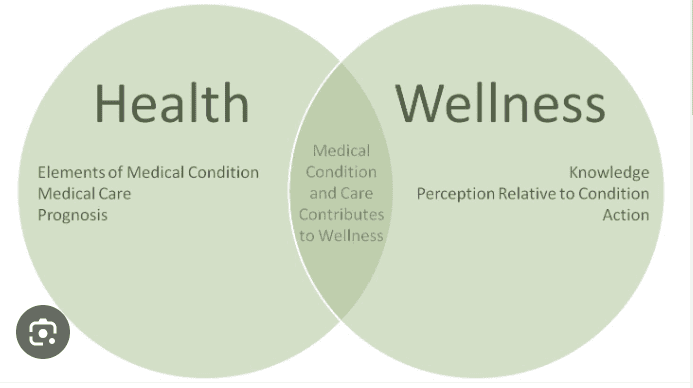Welcome to our blog, where we delve into the world of health and wellness! In this article, we will explore the importance of maintaining good health and how it impacts every aspect of our lives. Health is not just about being free from disease; it encompasses physical well-being, mental and emotional balance, and adopting sustainable lifestyle practices. So grab a cup of tea or your favorite beverage as we embark on this journey together towards a healthier you! Let’s dive in!
The Importance of Maintaining Good Health
Maintaining good health is crucial for leading a fulfilling and vibrant life. When we prioritize our physical well-being, we are better equipped to tackle the challenges that come our way. A healthy body allows us to have the energy and stamina needed to pursue our passions, spend quality time with loved ones, and achieve our goals.
In addition to physical benefits, good health also has a significant impact on mental and emotional well-being. When we take care of our bodies through regular exercise, nutritious eating habits, and sufficient sleep, it positively affects our mood and overall mental state. Engaging in activities that promote good health releases endorphins – those feel-good hormones – which can help reduce stress levels and improve cognitive function.
Moreover, maintaining good health goes beyond just the physical realm; it extends into all aspects of our lives. It enables us to be more productive at work or school by enhancing focus, concentration, and memory. It also fosters stronger relationships as we have the energy and vitality needed to connect deeply with others.
By prioritizing self-care practices such as mindfulness exercises, relaxation techniques or engaging in hobbies that bring joy and fulfillment into your life can significantly contribute towards maintaining optimal health.
Remember that each person’s journey towards achieving good health is unique; what works for one may not work for another. Therefore it’s essential to listen to your body’s needs while seeking professional help when necessary.
So let’s make a commitment today—to ourselves—by embracing a sustainable lifestyle that promotes long-term health. By making small changes every day like incorporating healthier food choices or finding enjoyable ways to stay active—we are taking vital steps toward improving both our present well-being and future longevity!

Mental and Emotional Well-Being in Relation to Physical Health
Good mental and emotional well-being is just as important as physical health when it comes to overall wellness. Our minds and bodies are interconnected, and what affects one can have a significant impact on the other.
When we experience stress, anxiety, or depression, our bodies often respond with physical symptoms such as headaches, muscle tension, or even digestive issues. On the other hand, when we take care of our mental and emotional health through practices like meditation or therapy, we tend to see improvements in our physical well-being too.
One way to support both aspects of health is by incorporating self-care practices into daily life. This could include activities like exercise, getting enough sleep, practicing mindfulness or relaxation techniques, or simply engaging in hobbies that bring us joy.
However, it’s also important to recognize that sometimes professional help may be needed for persistent mental or emotional health issues. Seeking therapy or counseling can provide valuable support and guidance for managing these challenges.
Creating a sustainable lifestyle that prioritizes both mental and physical well-being is crucial for long-term health. It’s about finding balance between work and play, taking time for ourselves amidst the busyness of life,and cultivating healthy habits that nurture all aspects of our being.
Remember: good health is not just about being free from disease—it’s about thriving mentally and emotionally too! So let’s make sure to prioritize self-care practices and seek professional help when needed to maintain optimal wellness in every area of our lives.
Integrating Self-Care Practices into Daily Life
Taking care of yourself should always be a priority, but in the hustle and bustle of our daily lives, it can often get pushed to the backburner. However, incorporating self-care practices into your routine is essential for maintaining good health and overall well-being.
One way to integrate self-care into your daily life is by setting aside some dedicated “me time.” This can be as simple as carving out 15 minutes each morning to meditate or journal before starting your day. Finding moments throughout the day to take breaks and relax can also make a big difference.
Physical activity is another important aspect of self-care. Make it a point to engage in regular exercise that you enjoy, whether it’s going for a run, practicing yoga, or dancing around your living room. Moving your body not only improves physical health but also releases endorphins that boost mood and reduce stress.
Nourishing your body with healthy foods is yet another way to practice self-care on a daily basis. Incorporate wholesome meals filled with fruits, vegetables, lean proteins, and whole grains into your diet. Stay hydrated by drinking plenty of water throughout the day as well.
In addition to these practices, don’t forget about mental and emotional well-being. Engage in activities that bring you joy and help you relax such as reading a book or listening to music. Surround yourself with positive influences and cultivate meaningful relationships.
Integrating self-care practices into daily life requires making conscious choices that prioritize your physical, mental, and emotional health. Remember that taking care of yourself is not selfish; it’s necessary for leading a fulfilling life! So start small today – carve out some time for yourself – because you deserve it!
Seeking Professional Help for Persistent Health Issues
When it comes to our health, sometimes we need to reach out for professional guidance. While self-care practices can go a long way in maintaining our well-being, there are instances when persistent health issues require the expertise of healthcare professionals.
One key reason why seeking professional help is important is because they have the knowledge and experience to diagnose and treat specific conditions. They can conduct thorough examinations, order necessary tests, and provide accurate diagnoses that can guide the appropriate course of treatment.
In addition, healthcare professionals have access to a wide range of resources and tools that may not be readily available to us as individuals. From specialized equipment to cutting-edge research, they stay up-to-date with the latest advancements in medicine so they can offer tailored solutions for our unique health challenges.
Moreover, seeking professional help allows us to benefit from their holistic approach to care. Healthcare providers consider not only physical symptoms but also mental and emotional factors that may contribute to our overall well-being. This comprehensive approach ensures that all aspects of our health are addressed and treated effectively.
It’s important to remember that reaching out for help does not mean weakness or failure; on the contrary, it shows strength and determination in taking control of one’s own health journey. By collaborating with professionals who specialize in different areas of healthcare, we empower ourselves with the support needed for optimal wellness.
So if you’re dealing with persistent health issues that don’t seem to improve despite your best efforts at self-care, don’t hesitate – seek out a trusted healthcare provider who can guide you towards better health outcomes. Remember: you deserve expert care!

Creating a Sustainable Lifestyle for Long-Term Health
As we have explored the importance of maintaining good health and integrating self-care practices into our daily lives, it is clear that taking care of our physical and mental well-being should be a priority. However, sustaining these efforts over the long term can sometimes be challenging. That’s why creating a sustainable lifestyle for long-term health is crucial.
When it comes to establishing healthy habits, consistency is key. It’s not about making drastic changes overnight but rather adopting small, manageable steps that can be maintained over time. Start by incorporating regular exercise into your routine, whether it’s walking, jogging, or joining a fitness class you enjoy. Find activities that bring you joy and make them part of your weekly schedule.
Additionally, focus on nourishing your body with wholesome foods. Include plenty of fruits, vegetables, whole grains, lean proteins, and healthy fats in your diet. Avoid processed foods as much as possible and opt for home-cooked meals whenever feasible. Remember to stay hydrated by drinking enough water throughout the day.
Another important aspect of creating a sustainable lifestyle is prioritizing restful sleep. Aim for seven to eight hours of quality sleep each night by establishing a bedtime routine and creating an environment conducive to relaxation.
In addition to physical aspects like nutrition and sleep, nurturing positive relationships plays an integral role in long-term health as well. Surround yourself with supportive friends and family who encourage your wellness journey. Engage in activities together that promote both mental and physical well-being.
Don’t forget to take time for yourself regularly – engage in hobbies you love or practice mindfulness through meditation or yoga. Prioritizing self-care allows us to recharge mentally and emotionally so we can better cope with life’s challenges.
By embracing these habits consistently over time instead of relying on short-lived resolutions or quick fixes, we create lasting change that positively impacts our overall health and well-being.
Remember – achieving optimal health is a lifelong journey, and it’s never too late to start. So let

